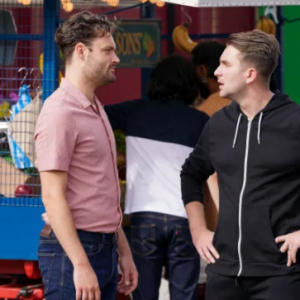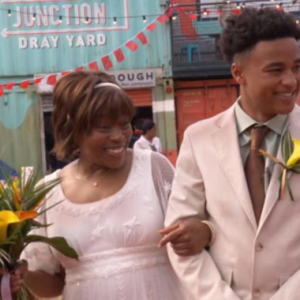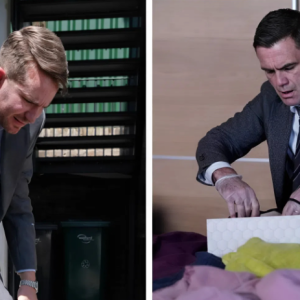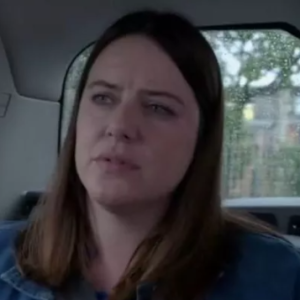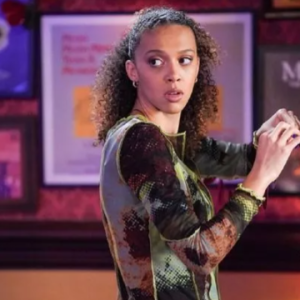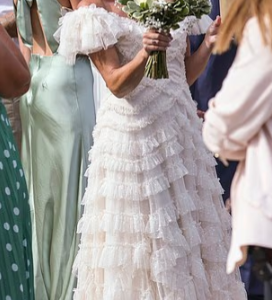EastEnders, renowned for its intricate web of family secrets and dramatic revelations, has once again plunged its loyal fanbase into a swirling vortex of speculation. Just when viewers thought a long-standing mystery was finally laid to rest, the BBC soap has dropped a bombshell that has left many questioning everything they thought they knew. The enigma surrounding the true identity of Joel Marshall’s mother, a narrative thread introduced subtly since his arrival in Walford earlier this year, recently seemed to find a definitive answer. Yet, the fervent community of EastEnders aficionados isn’t buying it, vehemently asserting that the named “Cleo” is merely a smokescreen, designed to conceal a far more explosive truth.
Joel, who arrived in Albert Square alongside his stepmother Vicki Fowler and father Ross, has been a character cloaked in an air of unresolved tension. From the outset, his strained bond with Ross hinted at deeper, unaddressed issues that transcended typical teenage angst. The narrative, while focusing on his adjustment to life in Walford and his interactions with new friends like Tommy Moon, cleverly kept details of his past deliberately vague. This ambiguity allowed viewers to lean into a particular theory with almost obsessive passion: that Joel’s biological mother was none other than the iconic Zoe Slater. Zoe, a character deeply embedded in the show’s lore, had recently made a brief, impactful return after years away, reigniting the flame of speculation. Her tumultuous history and propensity for sudden, dramatic reappearances made her a prime candidate for such a clandestine maternal connection. However, the show then abruptly introduced a new name, throwing the burgeoning fan theory into disarray and sparking a fresh wave of chaos and debate across the fandom.
The pivotal moment came during a vulnerable heart-to-heart between Joel and Tommy. In an uncharacteristic moment of openness, Joel spoke about his mother for the very first time. He vaguely referenced a shift in their lives back in Australia, postulating that “everything changed” after his mother, Cleo, allegedly cheated on his father. When Tommy, with typical teenage directness, asked if he missed her, Joel’s response was notably detached, almost dismissive: “I don’t think about her much. I’ve got way more going on for me over here anyway.” This emotionally reserved answer, while potentially indicative of a profound, painful estrangement, immediately struck many viewers as suspiciously convenient. Was it a genuine reflection of a strained relationship, or a carefully constructed façade to hide something far more complicated and deeply unsettling?
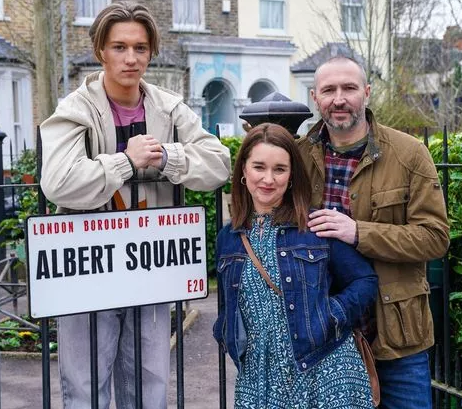
The skepticism wasn’t solely fueled by Joel’s nuanced delivery. Earlier in the same episode, an exchange between Vicki and Ross added another layer to the mystery. Vicki remarked to Ross, “You saw his face turn when I mentioned Cleo. He won’t even call her ‘mum’.” This detail, presented as a damning insight into Joel’s feelings, could easily be interpreted in two ways: either as genuine evidence of his disdain for his biological mother, or as a deliberately planted clue, designed to reinforce the “Cleo” narrative and divert attention from a much larger, more shocking story simmering beneath the surface. EastEnders has a long and storied history of deploying such red herrings, expertly manipulating viewer expectations before pulling the rug out from under them with a grander, more convoluted reveal.
EastEnders viewers are notoriously astute, possessing a collective memory and analytical prowess honed over decades of complex storylines. Unsurprisingly, the “Cleo” reveal was met with widespread skepticism, igniting a firestorm of discussion across social media platforms. Within minutes of the episode airing, posts challenging the official narrative flooded timelines. “Joel’s mum is called Cleo is it? Sure,” one fan sarcastically posted, their tone dripping with disbelief. Another chimed in with a more chilling and widely-embraced possibility: “I get the feeling that ‘Cleo’ could be a cover name that Zoe has been using. This goes deeper.”
The theory that Zoe Slater could be living a secret double life, potentially under an assumed identity, gains significant traction when considering EastEnders’ penchant for explosive family secrets, long-lost parentage twists, and characters reappearing with hidden pasts. Zoe’s history is replete with dramatic revelations – from discovering Kat Slater was her biological mother, to her tempestuous relationship with Alfie Moon, and her various dramatic departures from the Square. For a character like Zoe to have secretly given birth to a child, kept it hidden, and possibly used an alias, would not be out of character. It would perfectly align with the show’s tradition of delivering high-stakes, emotionally charged family drama. Such a storyline would not only provide a sensational twist but also offer a rich vein of material for both Joel and Zoe’s character arcs, exploring themes of abandonment, identity, and the lingering echoes of past mistakes.
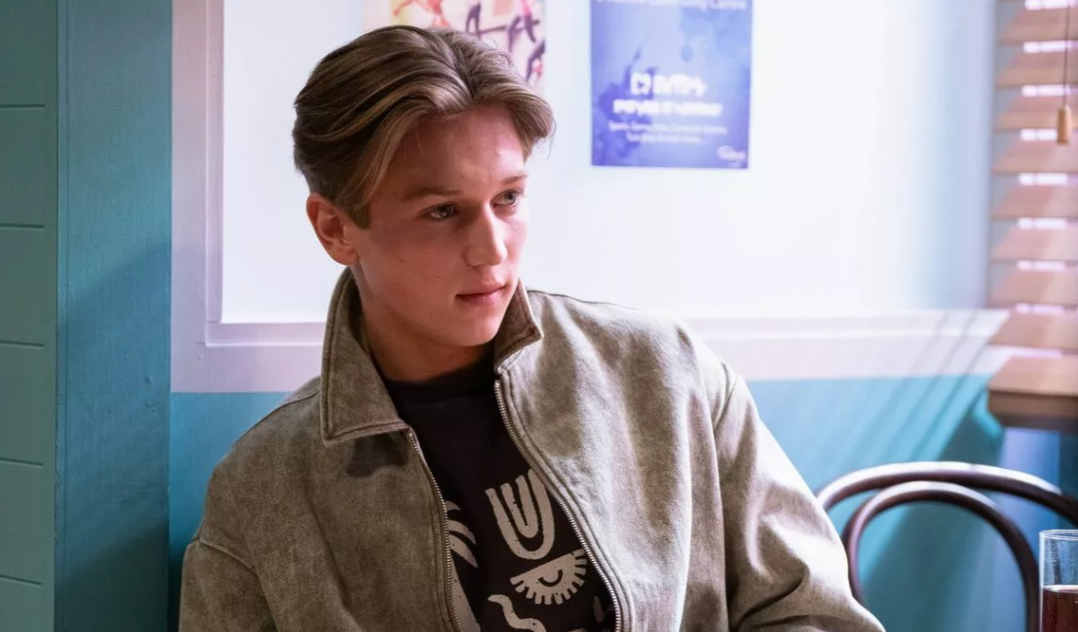
While the “Zoe-as-Cleo” theory dominates the fan discourse, not everyone is convinced by the conspiracy. A segment of the audience believes the mystery has, at last, been genuinely solved. “Vicki seemed to know who Cleo was,” one viewer posted, “and she’s been mates with Joel’s dad before they got together, so guessing it’s not Zoe.” This is a fair and logical point. If Vicki, who has a pre-existing relationship with Ross, is familiar with the name Cleo as Joel’s mother, it would significantly undermine the idea of Cleo being a recent alias adopted by Zoe. However, even this counter-argument leaves room for doubt. Could Vicki herself be unknowingly or even complicitly part of a larger deception? Or is her knowledge merely superficial, based on what Ross has told her, rather than a deep understanding of Cleo’s true identity?
And therein lies the brilliant strategy of EastEnders’ writing: the show is meticulously keeping its audience guessing. This calculated ambiguity is a hallmark of good soap opera storytelling, ensuring maximum engagement and fostering a vibrant community of theorizers. By offering just enough information to satisfy some, while simultaneously planting seeds of doubt for others, the writers maintain a dynamic tension that keeps viewers glued to their screens, hungry for the next twist.
What makes this “reveal” all the more suspicious is its impeccable timing. Just as viewers are eagerly anticipating Zoe Slater’s confirmed permanent return to Walford later this year, the show conveniently closes the door on the widespread theory that she might be Joel’s mother? Or, more deviously, have they just cracked that door open wider, setting the stage for a dramatic re-evaluation of the “Cleo” narrative?

The shadow of Zoe has lingered over Albert Square even in her absence. Alfie Moon, her former husband and the father of her child (whose existence itself was a past dramatic revelation), recently returned from Barcelona without her, yet her name continued to be invoked, a ghostly presence within the Slater family’s turbulent dynamics. Joel’s own increasingly erratic and troubled behaviour – his reckless drinking with Tommy, his public outbursts of rage in the Vic, his harrowing confrontation with Stacey Slater before being forcibly removed – paints a picture of a young man grappling with significant internal turmoil. There is clearly a deep-seated storm within him that has yet to be fully explained, and many believe that Zoe Slater, in some capacity, holds the key to unlocking this emotional tempest. Her potential connection to Joel would not only provide a powerful explanation for his current struggles but also weave his storyline seamlessly into the broader fabric of Walford’s most iconic families.
Joel’s storyline is slowly but surely evolving into one of the most psychologically rich and emotionally resonant arcs EastEnders has introduced in recent years. Themes of abandonment, fractured family ties, and identity crisis are already palpable in his narrative. Now, with the tantalizing possibility of a maternal deception or a profound secret about his parentage, these themes are amplified, creating a potent recipe for emotional devastation and character development. Whether “Cleo” proves to be a mere throwaway name, a genuine but estranged figure, or a deeply buried truth waiting to explode, fans are unequivocally hungry for answers.
The lingering questions promise a compelling future for EastEnders. Could we see Cleo arrive in the flesh, forcing a confrontation that either confirms or definitively refutes the current theories? Or will Zoe’s much-anticipated reappearance dramatically rewrite the entire narrative again, revealing a truth far more intricate and heart-wrenching than anyone currently imagines? How will Joel’s evident rage and inner turmoil spiral further as these secrets potentially surface, forcing him to confront his true origins? And how will Vicki and Ross, Joel’s immediate family in Walford, navigate the inevitable fallout of such a seismic revelation, especially if they are found to be complicit or have been unknowingly misled? The answers to these questions will undoubtedly shape Joel’s destiny and send ripples throughout the lives of Walford’s residents, cementing his storyline as a defining moment in EastEnders’ ongoing saga.
